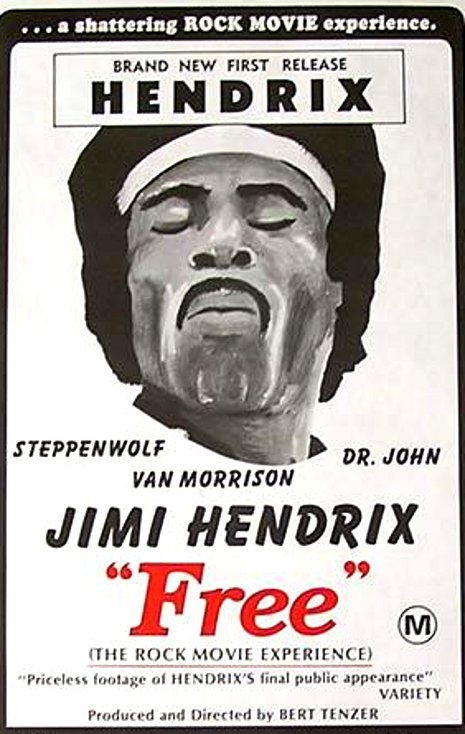
Altamont wasn’t the only hippie rock festival that started with a groovy idea and ended up impacted in the poop chute of the Aquarian Age. 1970’s New York Pop Festival was intended to be three days of fun and music. The result was about as much fun as a weekend with Squeaky Fromme at the Spahn Ranch.
The producers of the festival, appropriately named Brave New World, had put together a truly impressive roster of bands with headliners like Jimi Hendrix, Joe Cocker, Ravi Shankar and Van Morrison. But they immediately ran into problems when The Black Panthers, White Panthers, Young Lords and a dozen-plus activist groups wanted in on the action. The feeling among many in the radical community was that rock festivals had made millions of dollars off the counter culture and it was now time for some payback. Among the demands being made was 10,000 free tickets and $100,000 in bail money for an incarcerated Black Panther. There were other causes, other concerns, other demands. Despite attempts by Brave New World to find some common ground the whole thing turned into a fiasco. But the festival did go on. Though there were some musical no shows that angered an already tense audience, including 30,000 who got in free when fences were kicked to the ground. The most notable absence was Sly and the Family Stone. Sly lived up to his name and was smart enough to pull out when no money was forthcoming.
Bert Tenzer’s Free is a film of the New York Pop Festival that combines documentary footage with scripted sequences. For instance, DJ Murray The K adds some goofy commentary even though he was nowhere near Randall’s Island at the time. The film was released in 1974 and made little impression. Tenzer even went so far as booking the film with unknown bands performing in the cinema. No one cared. Tenzer then re-edited Free and released it as The Day The Music Died in 1976. Doing what he could to try to recoup his investment, Tenzer added clips of Marvin Gaye, The Beatles, The Doors and more, none of whom were actually at the festival. Archival footage of Angela Davis, The Vietnam War, Richard Nixon and Malcolm X was also tossed in to the mix to give the film some political and sociological context. Still no hit.
Despite its boxoffice failure, The Day The Music Died has a lot going for it, capturing a period of time when doing the right thing often ended up a casualty of good intentions gone bad, a time when revolution often spun out of control because of a failure to see the bigger picture. By 1970 the idealism and hope of the Summer Of Love was replaced by cynicism, weariness and the realization that even the purest of Owsley’s acid wasn’t enough to flush the toxins out of the collective consciousness that had accrued over thousands of years of bad karma. The flower children had gone to seed and our heroes were dropping like flies. Mission aborted. We needed to re-group and think things out. We needed to get real. “You say you got a real solution / Well, you know / We’d all love to see the plan.”
The Day The Music Died echoes the chaos that erupts when the mistrust between political groups, anarchists and street gangs grows unmanageable. The bottom line is capitalism and revolution is a volatile combination, both determined to destroy the other. The ideas that radical movements should get a free ride on the artistic and cultural products of others isn’t revolutionary, it’s parasitic. As long as artists expect to be paid (as they should) it might be a good idea for political movements to throw their own fucking festivals. Power to the people means all the people, not just the ones that get the Panthers’ seal of approval. I remember when the movie Woodstock opened in Berkeley in 1970 and hippies were picketing outside of the theater where it was being screened. Warner Brothers was banking millions off the counter culture and the longhairs were pissed. Even back then I thought the protest was silly… and I had hair down to the crack of my fucking ass. I didn’t go to the movie. Altamont had left a bad taste in my mouth and I had an Aquarian Age size hangover.
Towering over all the bullshit that happens in the The Day The Music Died is Jimi Hendrix who started a revolution without dogma, without arrogance and without rules. But he did have a plan and it was called music. There’s an argument to be made that rock and roll did more to positively change the world than any political movement, radical or otherwise. I may be wrong, but it’s an argument worth having. Whatever the case, I ain’t interested in any revolution that doesn’t include a sense of humor and monster guitar licks.
Watch in HD mode. It ain’t great but it looks a bit better.